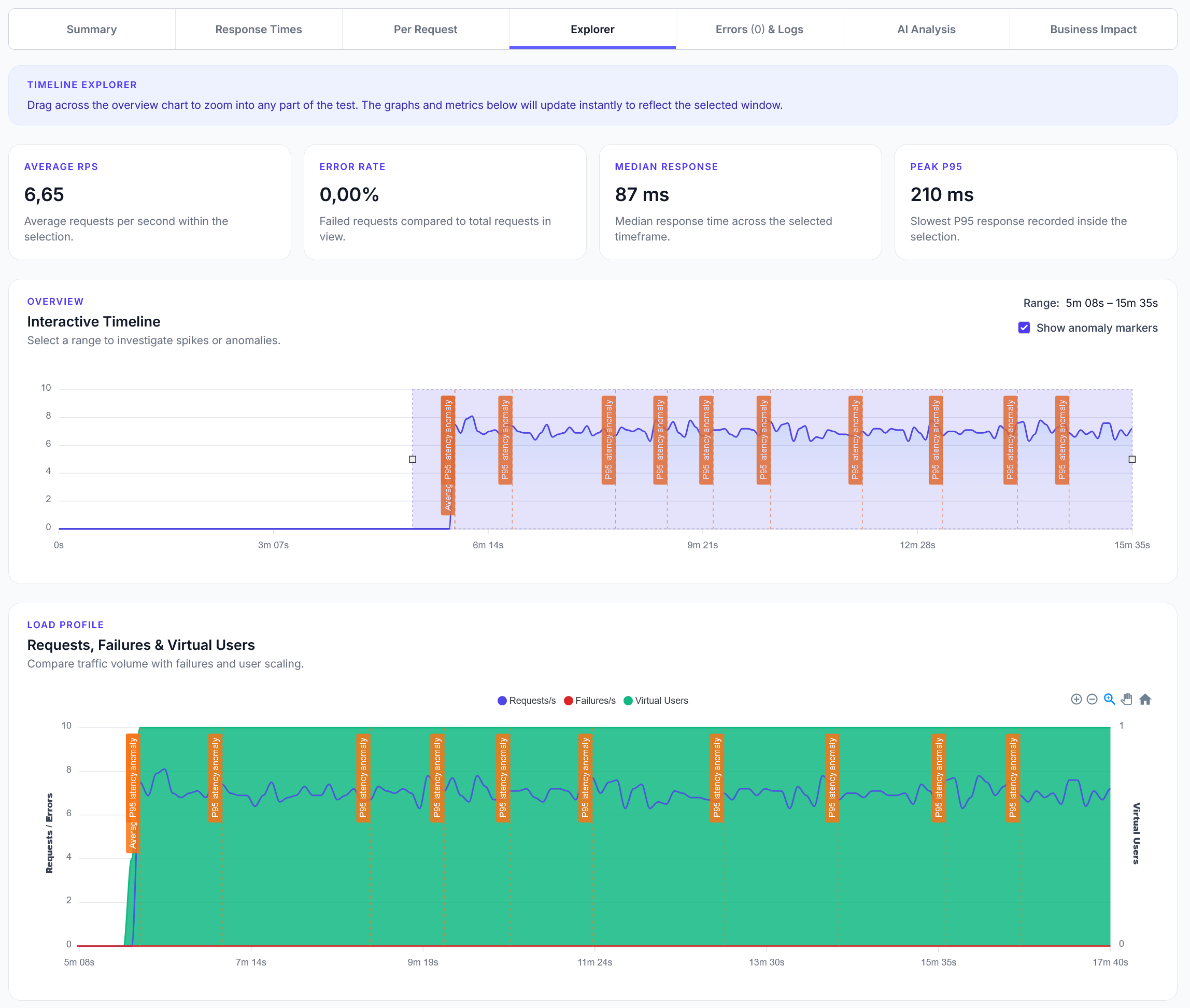
Explorer reports addition
We have added a new Explorer feature to reports, with a timeline scrubber and easy anomaly detection.
Send a login request to get an authorization token for the rest of your test
LoadForge can record your browser, graphically build tests, scan your site with a wizard and more. Sign up now to run your first test.
Certain applications require a request in order to get an authentication token. This is common with APIs or SPAs.
With LoadForge you can easily set any headers you need by tweaking your get() or post() calls to include a header set.
Below is a partial test (just the on_start section) that shows how to set an authorization (or really any) header
based on response content at launch with your load test.
Naturally, you would not do all of these. They are 3 examples of getting a Bearer token in different ways.
These are just partial examples from a test. You may use the wizard or another example template and copy paste these into your test.
from locust import HttpUser, TaskSet, task
import requests
class UserBehavior(TaskSet):
def on_start(self):
# Send login request
response = requests.post("http://mysite.com/login", {
"username": "user",
"password": "pass"
})
# THEN set "token" from response header
self.client.headers.update({"Authorization": response.headers.get("token")})
# OR set "token" from response cookies
self.client.cookies.set("Authorization", response.cookies.get("token"))
# OR set "token" from response body
token = response.json().get("token")
self.client.headers.update({"Authorization": token})
# continue the rest of your test
LoadForge is powered by locust, meaning open source locust users can copy this script as well. If you are a locust user, consider importing your script to LoadForge to supercharge your testing!